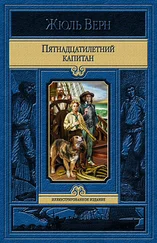Another sixty leagues to the south, and the Dobryna sighted the entrance of the strait which had afforded her so providential a refuge from the tempest, and had conducted her to the fragmentary relic of Gibraltar. Hence to the Gulf of Cabes had been already explored, and as it was universally allowed that it was unnecessary to renew the search in that direction, the lieutenant started off in a transverse course, towards a point hitherto uninvestigated. That point was reached on the 3rd of March, and thence the coast was continuously followed, as it led through what had been Tunis, across the province of Constantine, away to the oasis of Ziban; where, taking a sharp turn, it first reached a latitude of 32 degrees, and then returned again, thus forming a sort of irregular gulf, enclosed by the same unvarying border of mineral concrete. This colossal boundary then stretched away for nearly 150 leagues over the Sahara desert, and, extending to the south of Gourbi Island, occupied what, if Morocco had still existed, would have been its natural frontier.
Adapting her course to these deviations of the coastline, the Dobryna was steering northwards, and had barely reached the limit of the bay, when the attention of all on board was arrested by the phenomenon of a volcano, at least 3,000 feet high, its crater crowned with smoke, which occasionally was streaked by tongues of flame.
"A burning mountain!" they exclaimed.
"Gallia, then, has some internal heat," said Servadac.
"And why not, captain?" rejoined the lieutenant. "If our asteroid has carried with it a portion of the old earth’s atmosphere, why should it not likewise retain something of its central fire?"
"Ah, well!" said the captain, shrugging his shoulders, "I dare say there is caloric enough in our little world to supply the wants of its population."
Count Timascheff interrupted the silence that followed this conversation by saying, "And now, gentlemen, as our course has brought us on our way once more towards Gibraltar, what do you say to our renewing our acquaintance with the Englishmen? They will be interested in the result of our voyage."
"For my part," said Servadac, "I have no desire that way. They know where to find Gourbi Island; they can betake themselves thither just when they please. They have plenty of provisions. If the water freezes, 120 leagues is no very great distance. The reception they gave us was not so cordial that we need put ourselves out of the way to repeat our visit."
"What you say is too true," replied the count. "I hope we shall show them better manners when they condescend to visit us."
"Ay," said Servadac, "we must remember that we are all one people now; no longer Russian, French, or English. Nationality is extinct."
"I am sadly afraid, however," continued the count, "that an Englishman will be an Englishman ever."
"Yes," said the captain, "that is always their failing."
And thus all further thought of making their way again to the little garrison of Gibraltar was abandoned.
But even if their spirit of courtesy had disposed them to renew their acquaintance with the British officers, there were two circumstances that just then would have rendered such a proposal very unadvisable. In the first place, Lieutenant Procope was convinced that it could not be much longer now before the sea would be entirely frozen; and, besides this, the consumption of their coal, through the speed they had maintained, had been so great that there was only too much reason to fear that fuel would fail them. Anyhow, the strictest economy was necessary, and it was accordingly resolved that the voyage should not be much prolonged. Beyond the volcanic peak, moreover, the waters seemed to expand into a boundless ocean, and it might be a thing full of risk to be frozen up while the yacht was so inadequately provisioned. Taking all these things into account, it was agreed that further investigations should be deferred to a more favorable season, and that, without delay, the Dobryna should return to Gourbi Island.
This decision was especially welcome to Hector Servadac, who, throughout the whole of the last five weeks, had been agitated by much anxious thought on account of the faithful servant he had left behind.
The transit from the volcano to the island was not long, and was marked by only one noticeable incident. This was the finding of a second mysterious document, in character precisely similar to what they had found before. The writer of it was evidently engaged upon a calculation, probably continued from day to day, as to the motions of the planet Gallia upon its orbit, and committing the results of his reckonings to the waves as the channel of communication.
Instead of being enclosed in a telescope-case, it was this time secured in a preserved-meat tin, hermetically sealed, and stamped with the same initials on the wax that fastened it. The greatest care was used in opening it, and it was found to contain the following message:
"Gallia Ab sole, au 1 mars, dist. 78,000,000 l.! Chemin parcouru de fev. a mars: 59,000,000 1.! Va bene! All right! Nil desperandum!
"Enchante!"
"Another enigma!" exclaimed Servadac; "and still no intelligible signature, and no address. No clearing up of the mystery!"
"I have no doubt, in my own mind," said the count, "that it is one of a series. It seems to me probable that they are being sent broadcast upon the sea."
"I wonder where the hare-brained savant that writes them can be living?" observed Servadac.
"Very likely he may have met with the fate of AEsop’s abstracted astronomer, who found himself at the bottom of a well."
"Ay; but where is that well?" demanded the captain.
This was a question which the count was incapable of settling; and they could only speculate afresh as to whether the author of the riddles was dwelling upon some solitary island, or, like themselves, was navigating the waters of the new Mediterranean. But they could detect nothing to guide them to a definite decision.
After thoughtfully regarding the document for some time. Lieutenant Procope proceeded to observe that he believed the paper might be considered as genuine, and accordingly, taking its statements as reliable, he deduced two important conclusions: first, that whereas, in the month of January, the distance traveled by the planet (hypothetically called Gallia) had been recorded as 82,000,000 leagues, the distance traveled in February was only 59,000,000 leagues—a difference of 23,000,000 leagues in one month; secondly, that the distance of the planet from the sun, which on the 15th of February had been 59,000,000 leagues, was on the 1st of March 78,000,000 leagues—an increase of 19,000,000 leagues in a fortnight. Thus, in proportion as Gallia receded from the sun, so did the rate of speed diminish by which she traveled along her orbit; facts to be observed in perfect conformity with the known laws of celestial mechanism.
"And your inference?" asked the count.
"My inference," replied the lieutenant, "is a confirmation of my surmise that we are following an orbit decidedly elliptical, although we have not yet the material to determine its eccentricity."
"As the writer adheres to the appellation of Gallia, do you not think," asked the count, "that we might call these new waters the Gallian Sea?"
"There can be no reason to the contrary, count," replied the lieutenant; "and as such I will insert it upon my new chart."
"Our friend," said Servadac, "seems to be more and more gratified with the condition of things; not only has he adopted our motto, Nil desperandum! but see how enthusiastically he has wound up with his Enchante! "
The conversation dropped.
A few hours later the man on watch announced that Gourbi Island was in sight.
Читать дальше
![Жюль Верн Off on a Comet [Hector Servadac] обложка книги](/books/30131/zhyul-vern-off-on-a-comet-hector-servadac-cover.webp)










![Жюль Верн - Властелин мира [сборник]](/books/407848/zhyul-vern-vlastelin-mira-sbornik-thumb.webp)
